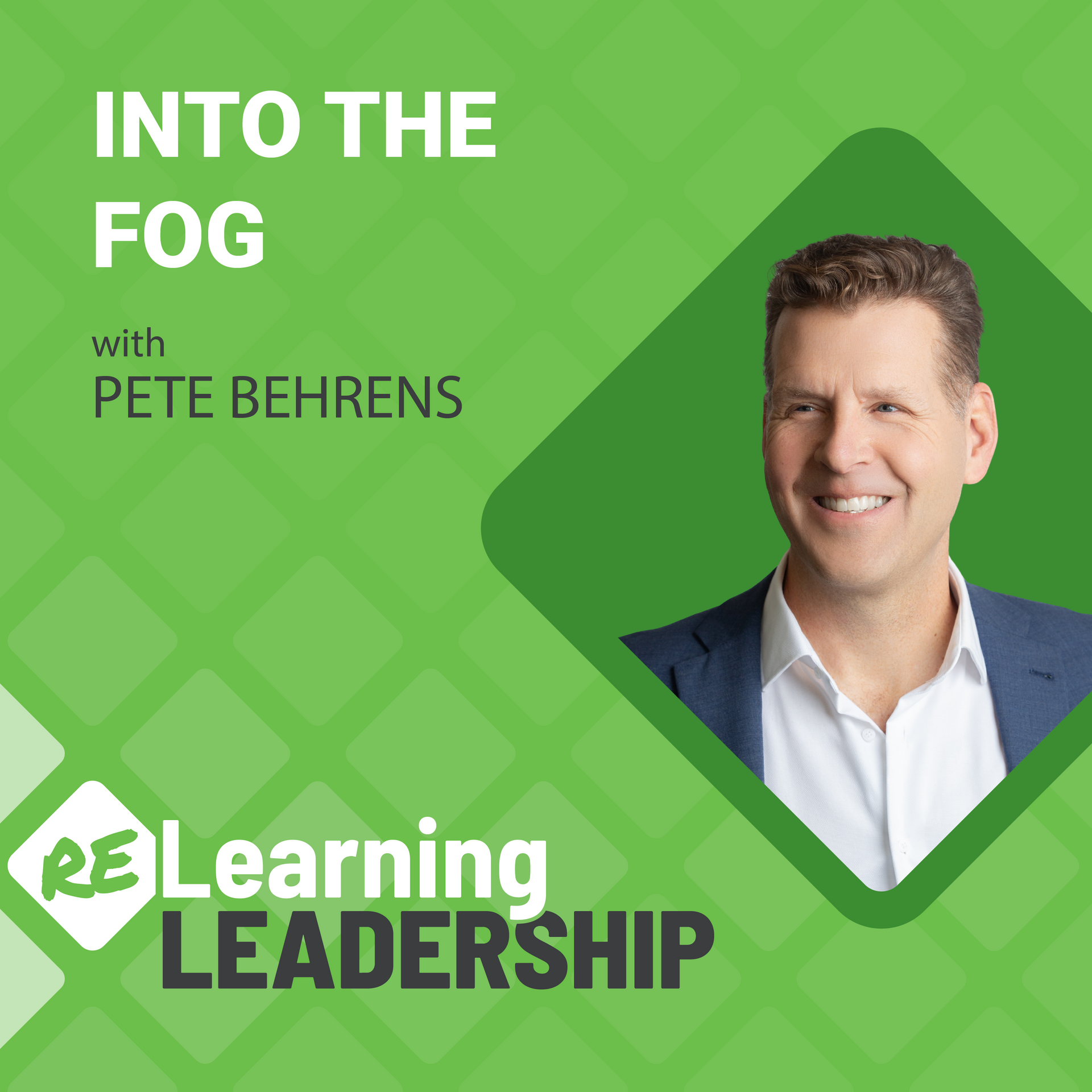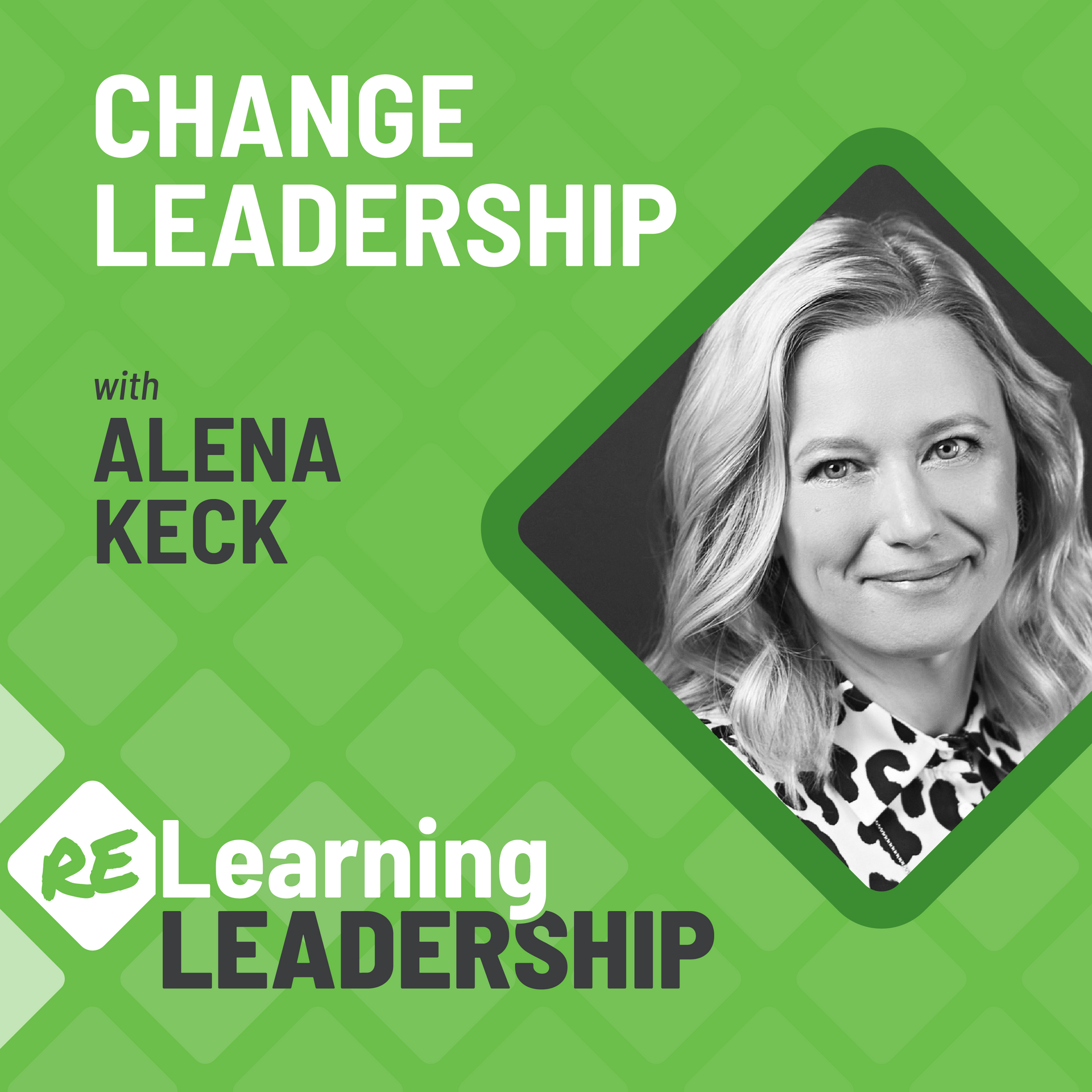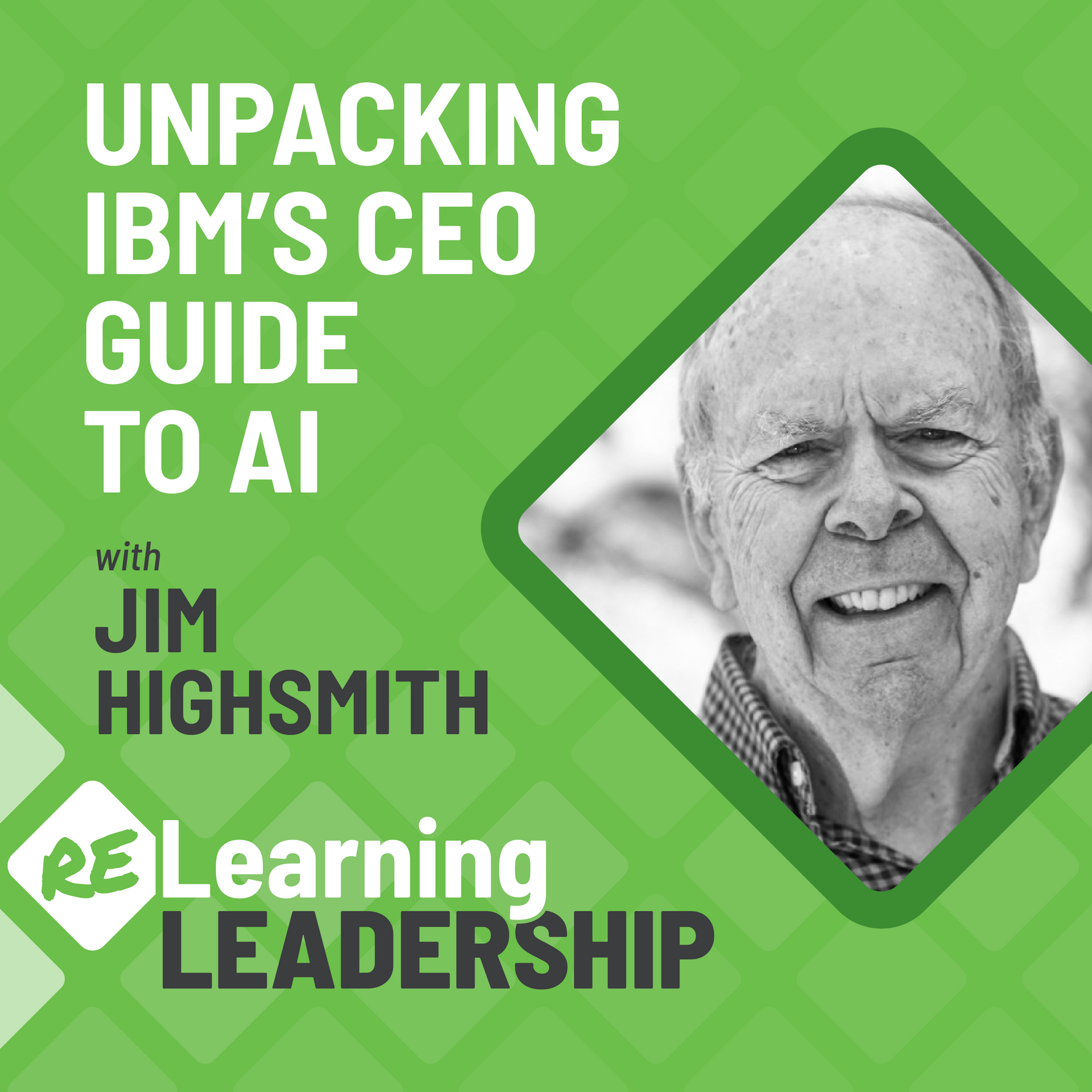25: Leadership Farm
What can leaders learn from other species?
Humans can be difficult. They judge others, hold their own agenda, and talk back. So maybe an easier way to learn leadership is through other species.
Executive coach and animal advocate Shawna Schuh joins Pete to discuss what leaders can learn and relearn by spending more time with other species.
Shawna Schuh, Leadership Coach
Shawna (She/Her) is a lifetime adventurer, entertainer, and leadership expert.
She is an innovative thought-leader who can help you unpack the pesky problems you encounter when you lead people. With a curious mind herself and a Master’s Certificate in Neuro-Linguistic Programming, Shawna is exceptionally skilled in the art of uncovering leadership blind spots through coaching, facilitating leadership groups and catapulting leaders out of the leadership weeds and into leading teams effectively.
Having worked with organizations like Nike and Columbia Sportswear to associations such as Fashion Group International and the National Speakers Association. Shawna shares a unique perspective so that the information and ideas she promotes stick and work.
With two TEDx talks to her credit, as well as 3 decades of experience, you will be enlightened as well as challenged while shifting from the less stellar things most leaders do to focus only on what the best leaders do.
For more information, visit ShawnaSchuh.com
Connect with Shawna
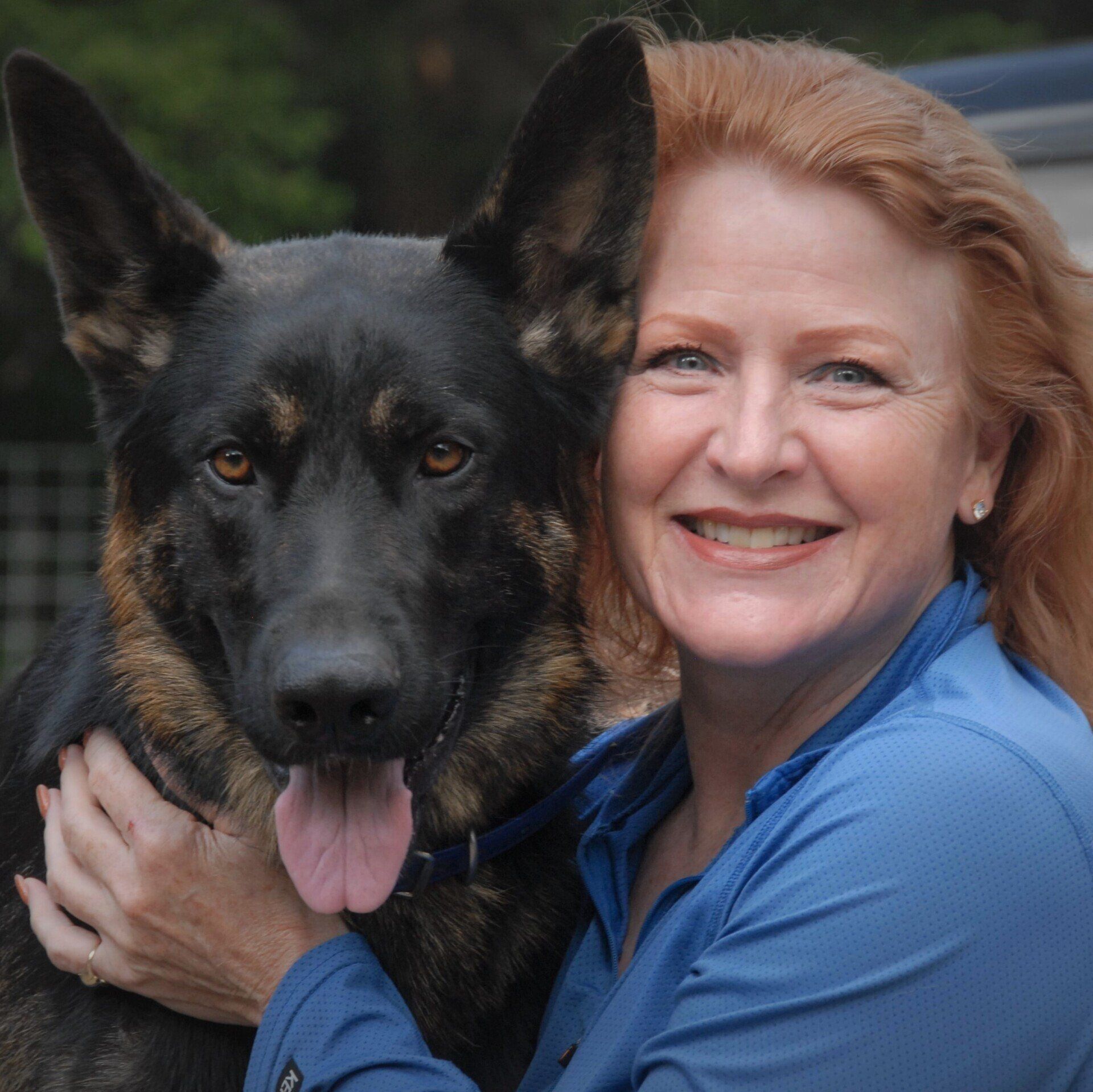
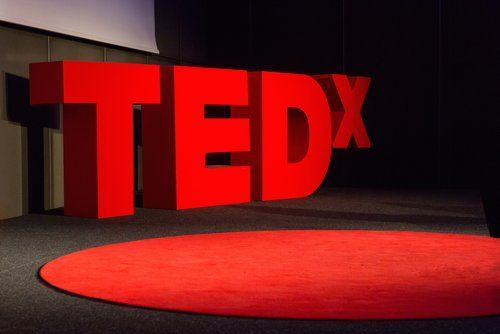
Shawna Schuh at TEDx
What Pets Can Teach You About Leadership - TEDxYouth@Austin
We Must Stop Pushing - TEDxMariettaSquare
Relearning from this episode…
Wow. What an awesome chat! I realize now where some of my leadership awareness comes from. My dad grew up on a farm and shared many of his farm principles with me, including the discipline and hard work it requires to accomplish anything. Let me share the key points I am taking away from this episode…
#1. Communication. Animals respond more to our behavior and demeanor than our words. As leaders, we need to realize our teams also receive more from us from our non-verbal communication than from our beautifully-orated speeches.
#2. Ownership. Leadership is more than guiding others. Leadership is taking personal initiative and responsibility for something that needs to be done. Anyone can demonstrate leadership in this way.
#3. Consistency. Leadership is not about demanding and telling. Rather, leadership is about creating a space where expectations are clear and consistent. That’s culture.
#4. Relationships. Leadership requires effective relationships. Engaging with animals can teach us to get off our high perches and get down to their level, whether petting, playing, or picking up their poop.
So don’t be an ass, a sheep, or the mystical lone wolf. Instead, open your heart and mind to learning from other species.
We Celebrate Joy Zimmerman’s Milestone
Joy Zimmerman, the creator of the music you hear on this podcast, is celebrating an award-winning album this summer. The Canvas Before Us reached Top #8 on the International Folk Chart!
Visit Joy Zimmerman Music
This season, we are celebrating Joy Zimmerman’s award-winning album,
The Canvas Before Us.
For this “other species” episode, I was compelled to include one my favorites from Joy’s past,
Sweet Bird.
This song is a great reminder that other species don’t judge and compare like humans do. Here’s to hoping we each can sing our song, unafraid, without shame.
Enjoy Sweet Bird.

Episode Transcript
Pete Behrens:
What can leaders learn from other species?
Welcome to another episode of Relearning Leadership, where we explore a specific leadership challenge and break it down to help improve your leadership, your organization…and even your personal life.
You heard me right. Today, I am joined by Shawna Schuh, an executive leadership coach who uses animals to help leaders grow.
Shawna Schuh:
When you have to pick up poop, it's a humbling experience. Here he is in a suit, and he's picking up his dog's poop. And this is the lesson right there—that he was willing to do whatever it took.
Pete Behrens:
Thanks for joining us today. Let’s dive in.
I am honored to be joined today by Shawna Schuh, an executive leadership coach and free thinker. Welcome to the show, Shawna!
Shawna Schuh:
Oh, I'm excited! And thank heavens thinking is free, or I'd be racking up some dollars! [Laughs]
Pete Behrens:
Well, I am interested to explore this space between coach and free thinker. But before we go there, I want to know a little bit more about you.
Shawna Schuh:
What would you like to know? I live on a little ranchette, I am pet-centric, and I'm happy!
Pete Behrens:
A ranchette, pet-centric, and happy! I don't think I have ever heard that description of any other person. That is awesome! [Laughs]
Shawna Schuh:
Probably not! Yeah, I was talking to somebody that's a client, and she said
“I envision you walking on your property followed by dogs and horses and, you know, in this blissful state.” And I said,
“Well you're not that far from the truth.”
[Laughs]
Pete Behrens:
Well, I know you've talked a lot about this concept, that leaders should put themselves amidst other species. And I'm assuming you're not talking aliens here! [Laughs] So dive into that a little bit more for us. What is it that pets and other species can help leaders with?
Shawna Schuh:
What a great question. And I have been pet-centric since—there was a dog when I was born on the farm. And then I spent most of my formative, real young years in the barn. And there's something really amazing about the calmness, especially farm animals. Matter of fact, what's crazy, Pete—it's a thing that people go and just pet cows. Like, this is a business for somebody!
What is that? What is that need, and how can leaders tap into it?”
And the leaders I work with—they have responsibilities. There's high stress. The numbers have to be there, and everything has to do with their performance. And yet, who do they go to, right? If the people who hired them—they can't talk to them and say, “Hey, I'm having some issues”, right? They don't talk to their peers because, once again, they don't want to lose their reputational capital. They certainly can't talk to the people they're leading. So a good cow, pet, might help somebody. [Laughs] Or, more importantly, having another species—cat, dog, bird, whatever it might be that loves you unconditionally, that you can de-stress with. And more importantly, the communication lessons that pets hold are astronomical. I mean, it's just a very good thing for a leader to do.
Pete Behrens:
Well, it's interesting. I've been a dog person, had dogs most of my life as well. As you mentioned, that unconditional love, but there's also just that, I don't know, walking alongside or that sense of calmness that, I guess—there's no expectations. Help me dive into that a bit more.
Shawna Schuh:
Well, and good question. There was a man I was working with, and he had a whole slew of people under him. And I asked him to walk me through his team, and he didn't know them. I mean, he didn't really know them. But if they didn't perform, then they were out. And I said to him that I thought he should get a dog, and he immediately went, “Why? You know, they're dirty.”
And I said,
“Yes, and you can't fire them when you're irritated.” And right there is the point—that when you're with this other species—a dog, particularly—that when you're irritable, where your team might look at you and question you, the dog just takes it. The dog is going to love you. The dog is going to listen to you. And it's a great sounding board for a leader without any of the repercussions that could happen, especially when you're sharp, and you're like,
“Get away!”
And if you said that to a human, they would take offense. But a dog just, you know, shrugs and goes and plays with themselves, you know? I mean, they don't take offense when you have irritability, and I think that's a gift.
Pete Behrens:
That's interesting. So you're talking about the dimension of what I feel when I'm with another animal. That can feel calm. That can feel relaxed. I'm curious about the other side of it. You know, when we're in a relationship with an animal, a species, is there something we can learn in that relationship that helps us be better leaders? You know, I recall, horseback riding. And, you know, somebody was really struggling with getting their horse under control. And the instructor was just like,
“Relax. They feel your stress.” And it was that symbiotic relationship that I think,
“How do we learn from those other species too?”
Shawna Schuh:
First of all, beautifully said. I believe the animals also train us. If you're asking that dog to sit, and it doesn't, and then you say it louder:
“Sit!” Like, he can't hear you, right? So then you say it a third or fourth time.
“I said, ‘Sit!’”
Well, you just learned a big leadership lesson. What you just taught your dog—that they have to sit on the fourth time. And think about what you're doing to your team when you're asking for something, and they don't get it. And then you ask for it again, and you're irritated with a team. But in reality, you didn't communicate clearly enough. So, we think we do, but we don't. And same with the horses. When I hear somebody, and they're like,
“He's backing up! He's backing up!”
And I'm like,
“You're pulling him back!” “No, I'm not doing anything!” But in reality, you are, and you don't know it, which is such a gift to be able to realize that we're communicating all the time with our bodies, with our nerves. And that energy sweeps through our teams.
And I'm going to bring this up because I think it's important. If an animal is hurting or frightened or cornered, pretty certain you're going to get hurt, because hurting things hurt others. And this is the same thing with people. So if we look at it and say, “I've got this person on my team or somebody that I'm dealing with, and they're being so mean or vicious, or they're hurtful,” I could probably say they're hurting in some way. And if you looked at it like that—think about it! Not taking offense, not getting angry at him and thinking to yourself, “Wow, I've cornered this person. That's why they struck out at me.” It's probably because they're hurting.
Pete Behrens:
It reminds me of when I was an engineering manager, and I was frustrated with one of my engineers. And he was coming in late. And I lashed out one morning and just got frustrated. And come to find out he was dealing with a very sick child, and I did not know. And I didn't have the competency at that time, as a leader, to ask first what's up. Yeah. What you're indicating here is—this person was in a damaged place, was in a tough place. And we often jump to assumptions, I think, as leaders.
“Oh, he's doing something against me! He's obviously not happy. He's frustrated with what assignments I've given him, whatever stories”—I think Brené Brown says this, right? The stories we tell ourselves, and how often that leads to the misappropriation of action based on those thoughts.
Shawna Schuh:
Well said. And that's why the animals remind me when I'm asking for a simple task or I have not made something clear enough. Like, at my house, the dogs don't come in until they're invited in. This takes consistency. And I'm going to tell you one of the biggest challenges with leaders is consistency. Because we've just read the new book, and we want to try something new, or we're being innovative. And people are like,
“I don't know where we're headed. I don't know where we're going.” And so, as a leader, being consistent is not easy, but it's a great training ground when you have animals.
Pete Behrens:
So that example—right?—not coming in until invited—it's sparking in me a thought of dominance or a thought of obedience. And I know that's probably not the metaphor we're looking for, in terms of leadership and subordinates. And so, help me make that translation. Help me understand how to take that into a leadership-employee relationship.
Shawna Schuh:
Beautiful. Within philosophies of training versus education, you really train animals where I believe you educate humans. But the principles are such that this is not dominance. This is not,
“I am the leader!” However, this is just the way it works in our culture. I don't have to force them. I don't have to put them down. They have dirty paws. They're not coming in until I invite them, usually with a towel in hand. This is just a guideline that I created as the leader of my world. So it's not even training. It's just, we've all agreed to this. This is where the challenge lies within teams. And this is stuff I've never talked about before, so bravo, Pete, for bringing this up. Because if you look inside your teams, and you say that they're inching in, right? People are starting to become later and later, or it's starting to falter back, probably there is something that has either been inconsistent, or you have not, just, reiterated that this is the way it is in our house, in our culture.
Pete Behrens:
I think in another episode we had, they called that the
broken window syndrome.
If there's a broken window, and it's not fixed, it will likely create more broken windows and graffiti and things. The way I like to describe that is: culture is what leaders tolerate. And so, if you tolerate messy dogs in the house, that will be the norm. And so, maybe what I heard from that was—clarity, as a leader, to your values, to your working arrangements that create a consistency and an expectation—that helps a broader communication.
Shawna Schuh:
Well said. I find, sometimes, if my dogs challenge me, which they do! I have a German shepherd. And let's face it—I don't know if you know anything about the breed, but they challenge. And so, when he's inching in, when he's got his foot over the threshold, I have a choice here, as a leader—I'm the leader of my pack—to be harsh.
“Get back!” Or I can remind,
“No!” Because he knows. And I think that that's also a great lesson just for people listening to think about when something's not done right, or when they're beginning to—what did you say, tolerate? When you're tolerating something, how harsh are you? Because usually we're harsh. Not because of what the other person has done, but because we're mad at ourselves for tolerating it to begin with. By the time we decide to shift it, we're done. And it would be simpler, as a leader, to continue to be consistent on our culture.
Pete Behrens:
Speak softly, and carry a big stick. Is that it? [Laughs]
Shawna Schuh:
My dad used to say that all the time!
Pete Behrens:
So you're talking about how a leader can learn leadership through communication, through actions, through consistency with other species. Maybe share a story of where a leader has changed through that. Something that we might be able to connect to.
Shawna Schuh:
Beautiful. And if somebody's listening, and they're like,
“I don't like pets! You know, I don't like another species”,
or whatever it might be, does it mean that they can't be a great leader? Absolutely not. Of course they can be a good leader. Sometimes we have lessons and teachers in our lives, and we miss the lessons. So you might have had a dog your whole entire life, or a cat, and you completely missed the lessons. So when this particular client of mine—and I said,
“It would be valuable for you to have a dog!”, and he was totally against it. He ultimately got this dog. And two things happened that I thought were really pretty brilliant. He didn't have any idea how much he would really adore this relationship, so it enriched his capacity for love and also compassion. And when you have to pick up poop, it's a humbling experience. [Laughs] The best thing was how, you know, here he is in a suit and he's picking up his dog's poop. And this is the lesson right there—that he was willing to do whatever it took. And before, I don't believe he was.
Pete Behrens:
Hm. You're reminding me of Satya Nadella, CEO of Microsoft, who describes—his leadership growth mostly came when his child was born with special needs, because it forced him to rethink how to be a father.
You know, he couldn't take those patterns from his parents of
drive and push.
When you've got somebody who doesn't have that competency, it changes the way you have to lead. And I applaud in how he took that and then applied that into the work world. And I see a lot of parallels here. To truly have that good relationship with an animal, you've got to create that relationship. You've got to nurture that in a different way.
Shawna Schuh:
Absolutely. And one of the reasons my philosophies are about other species is because of course we learn all these things through having children or having spouses or having family. And a lot of that—they have their own agenda. And in general, dogs particularly, but even cats—they don't go,
“Oh, I wish I'd gotten a new family or a different family!” They don't have the things that we have, you know, like
“Oh, so-and-so's got a better husband, or they've got a better position, or they're making more money.” Humans compare, and animals rarely do. You never hear an animal saying,
“Does my butt look big?” Right? [Laughs] You're in this purest form. And where they landed is how they—they make the best of wherever they're at, even if it's not ideal. Now, that's a lesson.
Pete Behrens:
So, I can imagine you showing up in the workplace and bringing your emotional dog with you. Is that what Shawna's coaching relationship looks like?
Shawna Schuh:
Nah. The animals are in with me. My clients usually know it. I have a three-legged dog as well. And, boy, is he teaching me some good leadership lessons about how to adapt, how to get along! Really interesting. So I don't take my dogs with me. I use them as more metaphors. And I'm a horse woman, and I've had pigs. One of my TEDx talks talks about my pig. And I've had a goat. And rabbit! I've had them all. A goose!
Pete Behrens:
Wow. We got a true farm here, yeah.
Shawna Schuh:
Yeah, each one is giving me a little bit of a different lesson. But my coaching clients are already brilliant. They wouldn't be investing in themselves if they didn't understand or know that they could be better. And so they're already ripe for whatever it is that the tools—or the ways that we're helping them become a better leader. Because there are definite skills involved here.
Pete Behrens:
Let's go into that, maybe, space of, you know, people wanting to improve. What is it you see most leaders are maybe getting wrong? Where do you see the failure start to occur in those human relationships?
Shawna Schuh:
You already said it. It's what we tolerate. I call it, in my world, what we allow. And the minute that you're allowing—now, you may be a fabulous leader. And so you understand, like you did with your teammate that you got harsh with and didn't know he had a sick child—you may have handled that privately, which is great. But the rest of the team just knows that this person's coming in late every day. And next thing we know, we have everybody coming in late. But the more that we open that door of allowing bad behavior, someone to not speak to another person with respect, the more we will get of it. The other one that I think is probably even more prevalent is—most leaders tell. They're always telling people,
“Well, I told them! I told them what I wanted. I told them to go get it done.” But that doesn't mean they complied, because you're dictating, really, or you're constantly telling. And I think the very best leaders ask.
Pete Behrens:
Hm. I think you're getting into that, what [George] Bernard Shaw calls—the
illusion of communication.
We believe that it has taken place. And I recall my son trying to communicate or saying, you know, his roommate was really messy. And we were on a Zoom call with him, and he's like,
“Yeah, I've told him four times!” And his girlfriend looked over at him and said,
“You have
never told him that he’s messy!” And it was just eye-opening on our own perceptions of how we communicate. And probably he's hinted, or he's, you know, dropped some clues or something. But how explicit, I think, we need to be, in some cases, for that communication to come across.
Shawna Schuh:
Well, I love that you just said that. There isn't a leader I work with that doesn't say something like,
“Oh, my team would tell me!”
Right? Or “I've got such a good relationship with these people!” And I'm thinking,
“You're delusional!” Because your team is not going to tell you! They're like, “Yes, they would.” No! Their job is dependent upon your view. Really? So if a leader comes in and says,
“I've got this great idea, and I want you to break it down and tell me what you think.” Well, nobody's going to suggest it's not a great idea, because you just said it. And it's not a good idea, so they may have enough strength and courage to say something like,
“Well, have you considered? Or what if this?” But they're not going to challenge you that it's a good idea, because you just set it up. And I think leaders make that mistake a lot. Human beings—they're like mules. A mule will never hurt itself. And older people ride mules because they won't hurt themselves. A horse will fall over a crevice with you on him; a mule will not. I don't know if you knew that about mules, but now you do!
Pete Behrens:
Well, we heard it here. Shawna Schuh says everybody's an ass! [Laughs]
Shawna Schuh:
Sometimes they act like them!
Pete Behrens:
That's why it's so hard to communicate! We're all asses, yeah! [Laughter] I think you're getting into that safety space. The way we talk about this is—every leader comes with a default power. The status and the position and the authority, experience level, gender, nationality, culture. All those different things come into power. But a lot of that power is given versus taken. Who's working with you gives you power, too. But it's up to that leader to bring that down. It's up to that leader to create that safe space. Do you have a recommendation for how to break down some of those walls to allow that challenge to occur?
Shawna Schuh:
Such a good question because a lot of people, depending on where they are in the hierarchy of the culture, are waiting for permission. And true leaders rarely wait for permission. They see what needs to be done, and they do it. And I think animals help us there, too. Like, you go in and you put the bridle on the horse. And they're like,
“Well, it's so huge!” And when you take action, the horse complies. But if I was waiting for the horse to come to me, or I didn't know who I should ask, or—I would never ride. And I believe that sometimes we're waiting for permission too much. When, in reality, you're hired because you have smarts, talent, skills, and if you're going to use them, that's what every leader is waiting for, in my mind. They're waiting for somebody to step up and just do what's supposed to be done. I don't know a leader that doesn't admire that, when somebody comes up and says, “I looked at the numbers. Here's what's going on, and here's what I think should happen.” Like, give that person a promotion! However, in the hierarchy of most corporate cultures, there's that layer.
“Well, I didn't want to make a mistake.”
Pete Behrens:
And I think
that's the crux, challenging up. You have a responsibility to challenge up, to challenge those in power. I like to use the term
Robin Hood of power.
You know, steal from the rich, and give to the poor. And, you know, I think our companies need more of that. If there's going to be a co-creative space.
Shawna Schuh:
Well, the word
challenge is starting to—it kind of tickled in the back of my brain. If you're telling me I need to challenge, I may come across very harsh or very strong. And I'm thinking that's not the perfect word, maybe, because I'm about solution. As a leader, I'm going to look at what's going on, and I'm going to find a different path or maybe a new innovative way to think of this. But if I challenge my leader, depending on who they are, that's when I'm going to get squashed. And I don't want to challenge, because this is my job on the line. So, what's another word we could use to say that you're not challenging the leaders above you, challenging up? You are taking part of their job, or you're seeing what needs to be done and running without asking. That would be, really, where I'm at, where—“I made a choice. This is where I went.”
I'm not challenging anything!
I'm taking leadership in this, and I'm taking action based on what I think is the most appropriate way that this should move. Because I'm thinking like an owner, really. Did that make sense?
Pete Behrens:
Well, that was the word. Before you said
owner, the word
ownership was in my head. Like, we need to take ownership. And I think a lot of leaders in the middle of a system are looking for instruction and looking to follow. And you're kind of pushing, turning that around for them.
Shawna Schuh:
There was a book, and I know just enough to be dangerous right now. But I believe it was called
Zap.
There was a castle, and they all made arrows, but no one talked to each other. And it's kind of a fable—it's interesting—except for one division, that one piece that was really being successful. And so, then they went to find out what they were doing right. And I love the story because I don't have to have the whole castle. The corporation is the whole castle, but my little empire? I'm going to work that one really good. And I'm working with a leader right now who, first of all, got coaching for herself, was finding gigantic results with it. Now, she brought me in with just her top eight leaders of all the different divisions. And now we're going down to give everybody the same information, and she is leading the entire nation in growth. And she didn't ask anybody's permission. And she'd say to me, you know,
“You need to bill me in increments, because I have this much. And if I go over this, I have to ask!”
So we worked it out so that she could get whatever she wanted. That's a leader.
Pete Behrens:
I love it. I love the story. And it sounds like somebody we need on our podcast here!
Shawna Schuh:
Oh, she's amazing.
Pete Behrens:
Yeah, we use the term
wise fool,
somebody who's smart enough but can disrupt or think differently in a system. Where, you know, hopefully we're not a bunch of sheep, getting back to our animal species. We're not a bunch of sheep following orders. So maybe we've got your fable book coming in here as leadership as the animal farm.
Shawna Schuh:
There you go! You know, I always wondered about these sheep. Like, the Bible talks about sheep. Like, we're all sheep. And anybody who's lived on farms goes, “Do you know how stupid sheep are?” I mean, sorry, anybody who loves sheep! [Laughs] But I'm like,
“Please! Why are we depicted as sheep?” And, you know, some people will say the
lone wolf and things like that, and it makes me laugh because rarely ever are wolves alone. They work in packs; they work as a hierarchy. And it works! They're the most loving, amazing creatures, wolves are. So if you do any research at all, there is no, really, such thing as a lone wolf.
Pete Behrens:
Well, this has been a fascinating discussion, and you've intrigued my interest
in in animals. It's been a while since I've had a dog,
and and you’re making me a little bit jealous to maybe go back to that state. So I appreciate you joining us today and sharing your story, Shawna.
Shawna Schuh:
Thank you so much for having me. What a great podcast you've got. I love it.
Pete Behrens:
Wow. What a fun chat! I realize now where some of my leadership awareness comes from. My dad grew up on a farm and shared many of his farm principles with me, including the discipline and hard work it requires to accomplish anything. I’m inspired to return to the animals, so maybe a road trip to Oregon to visit Shawna’s farm is in my future.
OK, so what are we (re)learning from Shawna’s story?
#1. Communication. Animals respond more to our behavior and demeanor than our words. As leaders, we need to realize our teams also receive more from us from our non-verbal communication than from our beautifully-orated speeches.
#2. Ownership. Leadership is more than guiding others. Leadership is taking personal initiative and responsibility for something that needs to be done. Anyone can demonstrate leadership in this way.
#3. Consistency. Leadership is not about demanding and telling. Rather, leadership is about creating a space where expectations are clear and consistent. That’s culture.
#4. Relationships. Leadership requires effective relationships. Engaging with animals can teach us to get off our high perches and get down to their level, whether petting, playing, or picking up their poop.
So don’t be an ass, a sheep, or the mystical lone wolf. Instead, open your heart and mind to learning from other species.
Thank you. Oh, and stay with us past the credits for an “other species” celebration by Joy Zimmerman.
Relarning Leadership is the official podcast of the Agile Leadership Journey. It’s hosted by me, Pete Behrens, with analysis from our global Guide community. It’s produced by Ryan Dugan. With music by Joy Zimmerman. If you loved listening to this podcast, please leave us a review. And visit our website, relearningleadership.show, for guest profiles, episode references, transcript, comments, and more. And to (re)learn more about your own leadership, visit us at agileleadershipjourney.com.
This season, we are celebrating Joy Zimmerman’s award-winning album,
The Canvas Before Us.
For this “other species” episode, I was compelled to include one my favorites from Joy’s past,
Sweet Bird.
This song is a great reminder that other species don’t judge and compare like humans do. Here’s to hoping we each can sing our song, unafraid, without shame. Enjoy
Sweet Bird.
Explore:
Recent Episodes

